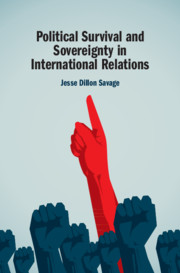
- Cited by 3
-
Cited byCrossref Citations
This Book has been cited by the following publications. This list is generated based on data provided by Crossref.
Menon, Rajan and Ruger, William 2020. NATO enlargement and US grand strategy: a net assessment. International Politics, Vol. 57, Issue. 3, p. 371.
Dillon Savage, Jesse 2021. Common-Pool Hierarchy: Explaining the Emergence of Cooperative Hierarchies. International Studies Quarterly, Vol. 65, Issue. 3, p. 712.
Menon, Rajan and Ruger, William 2023. Evaluating NATO Enlargement. p. 165.
- Publisher:
- Cambridge University Press
- Online publication date:
- March 2020
- Print publication year:
- 2020
- Online ISBN:
- 9781108658461


